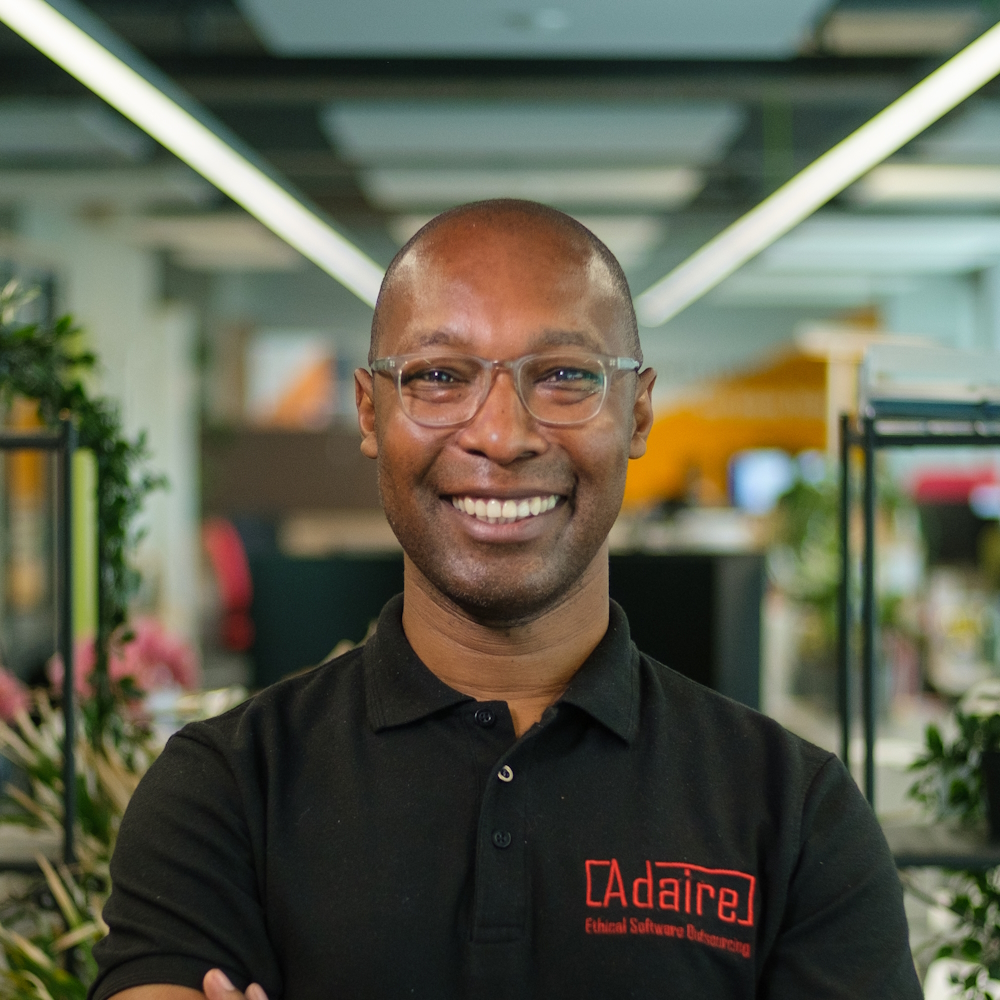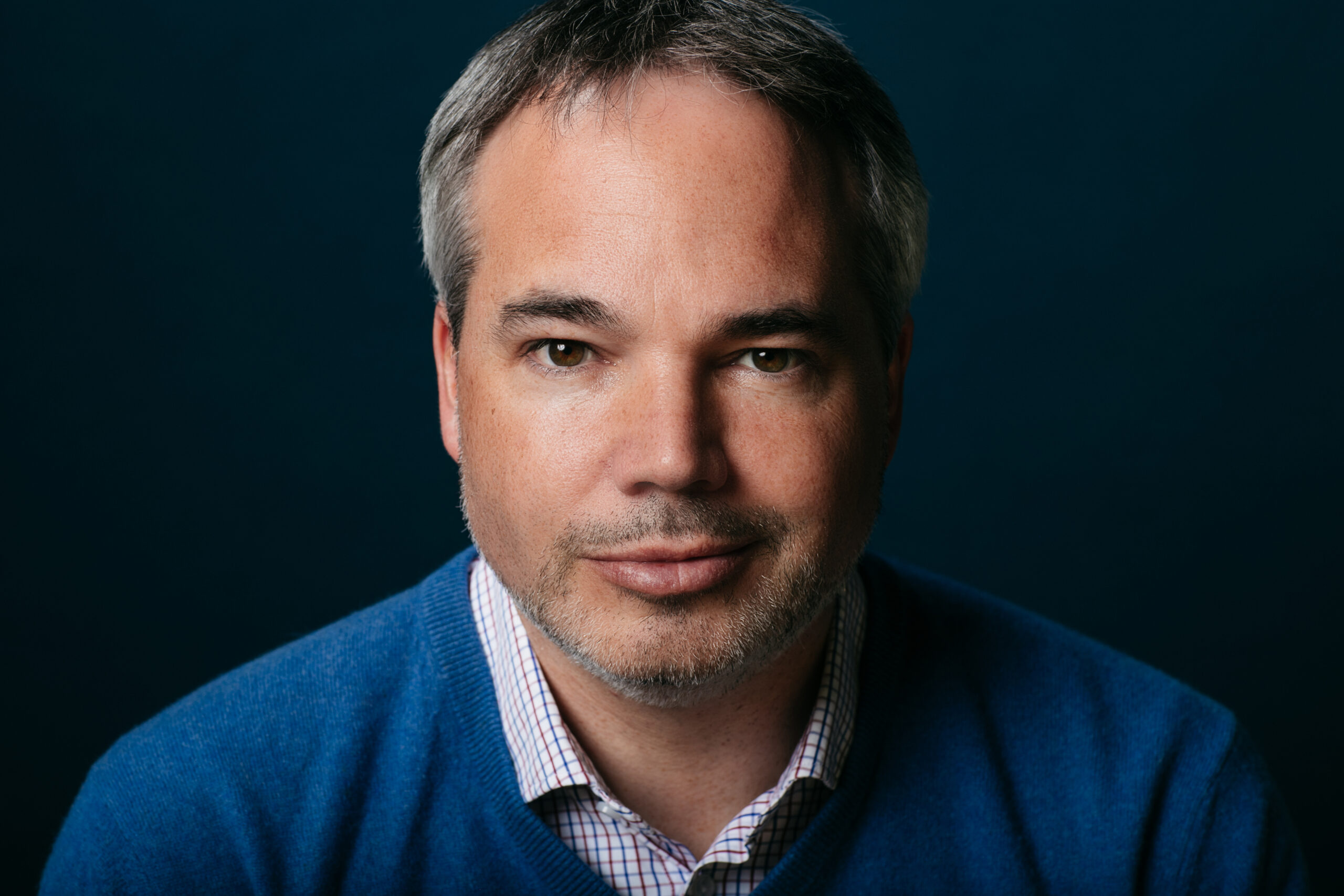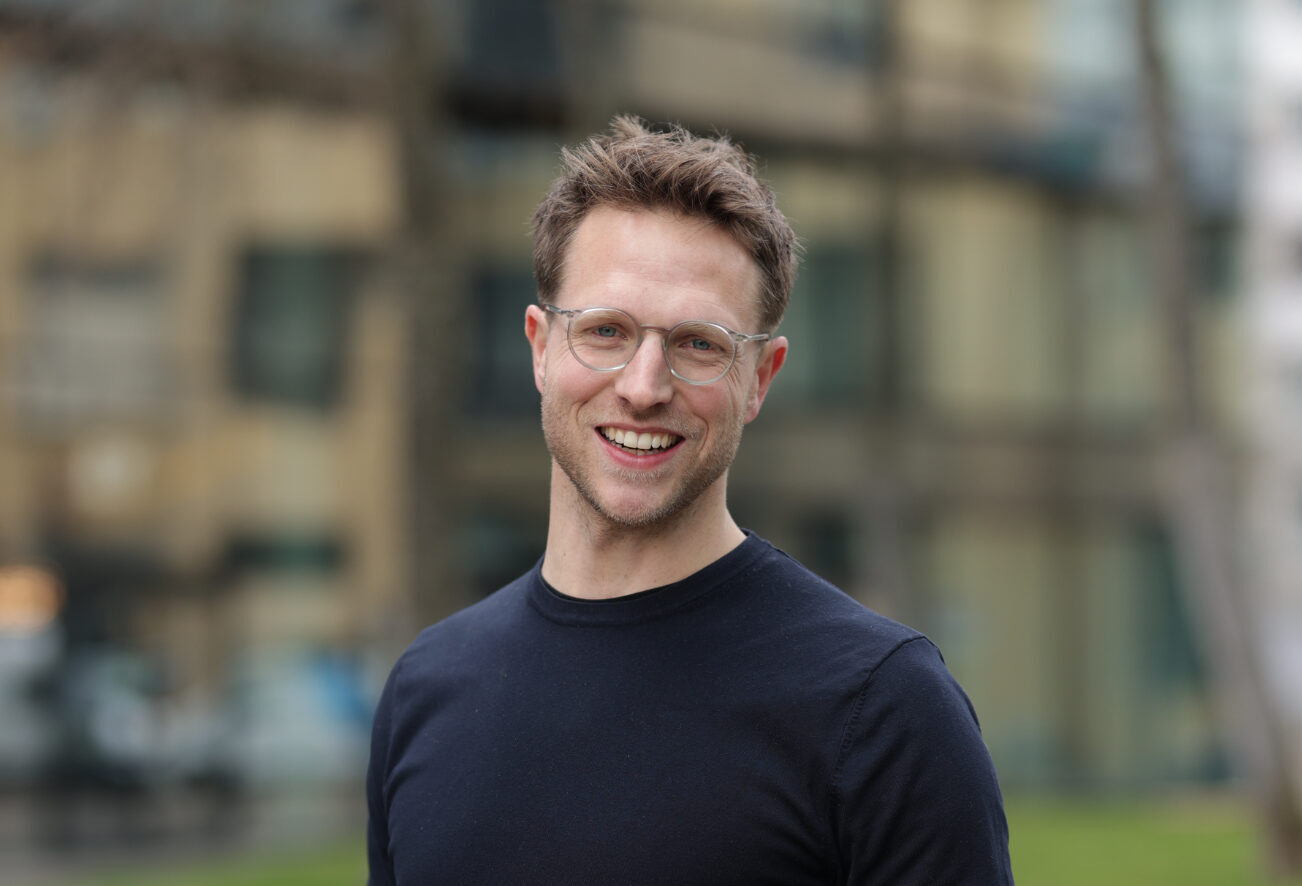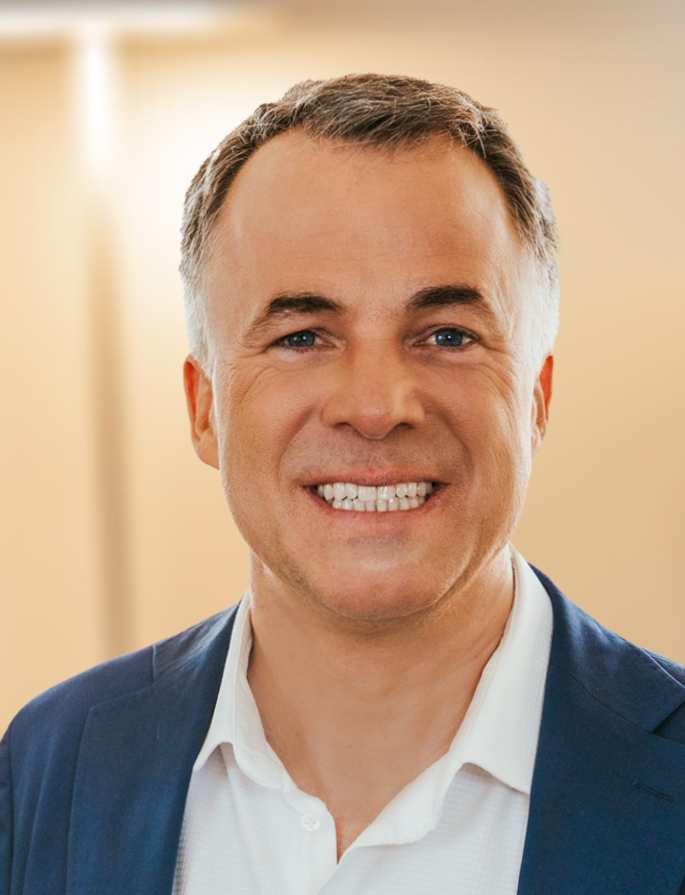First of all, thank you for taking the time for this interview. To start, you have held various positions in the tech space, including at Google, Microsoft, and several C-suite roles. Why did you decide to leave these positions and start your own company?
Why did I leave these companies and start my own business? It just felt right.
When I started the company, I had been working in big tech for about 20 years. I founded Adaire around four years ago, at a point where I was at a personal crossroads.
At that time, I had already been in Switzerland for two years, working in St. Gallen. It was the middle of COVID, and I was 42 or 43. The person who had recruited me to Switzerland in 2019, Andreas, left to return to Berlin. We had known each other for 14 years, he had been my boss at Google. Losing that professional anchor was significant, as we had a great working relationship.
When he left, my professional and personal support system within the company changed dramatically. Not necessarily in a bad way, but it changed. I was still relatively new to Switzerland, learning German, badly, but I was trying. Andreas had been my mentor, my structure within the company. With him gone, I began questioning what I wanted to do for the next 20 years.
I explored several options, including looking for new jobs at companies I had previously worked for. Given my experience, I had no trouble getting interviews. My CV was solid, I knew people in the industry, and I was confident I could perform well in any role.
I remember one interview in particular. I walked into this beautiful, shiny office, the kind of place with top-tier coffee machines, sleek workspaces, everything that would have excited me at 21 or 22. But as I stood there, I felt empty. There was a time when I would have loved everything about it, the corporate phone, the ID badge, the prestige. But at that moment, it felt like I was stepping back into something I had already done. I had been in that environment, faced those challenges, and I realised I needed a different direction.
That was when I started seriously considering starting my own company. It wasn’t a sudden revelation but rather a thought experiment. If I didn’t take another corporate job, what other options did I have? And that was how I started exploring entrepreneurship.
Did you ever consider switching industries, or was it always going to be tech?
No, I never really considered leaving tech. I may have briefly explored other options, but I never seriously pursued them. I like tech. I’m a tech guy, a nerd, a geek. That’s who I am, and I can’t get away from it.
I did think about different industry verticals within tech. Since I have an engineering background, I considered aerospace engineering, but I never saw myself leaving software, programming, and technology in general. It has always been my domain.
How did you first get into tech? Was there a key event?
Honestly? People were hiring.
I graduated in 2000, at the height of the dot-com boom, with a mechanical engineering degree. My original plan was to go into mechanical engineering, I loved tinkering, soldering, welding, and building things. I was the kid making stuff out of cardboard boxes at ten years old.
So, I planned to go into mechanical engineering, but at the time, tech companies were aggressively hiring. I knew some programming from my engineering coursework, and that gave me a foot in the door. I got multiple interviews with tech firms, including one that offered me jobs in San Francisco, Chicago, and Atlanta. I didn’t know exactly what a professional tech company did, but I liked the people I interviewed with and the vibe of the company.
The interview process was straightforward, no unnecessary hoops, no poor treatment. I ultimately chose Chicago because I had never been there before and figured, why not? I could always go back to mechanical engineering if tech didn’t work out. But once I started, I realized that the industry’s energy and rapid pace were a great fit for me.
What was the vision behind Adaire? How did you develop it?
As I mentioned earlier, when I started thinking about my next steps, I took stock of my background, experience, and personal network, what I call my “Lego set.” I asked myself, what do I have that could help me succeed in building a company?
First, I had spent years working in big tech. Second, while I had built a small professional network in Switzerland, my Co-founder, Andreas had a very strong network in Germany. Third, I was seeing a growing demand for software developers in European markets.
At that time, I had recently visited India, which has a well-established software outsourcing industry. I realised that Africa did not yet have the same outsourcing relationships with Western markets, particularly with Switzerland and Germany. Unlike India’s established connections with the US or Latin America’s with North America, there was no major talent corridor linking Africa with the DACH region. This struck me as a gap in the market and became the foundation for Adaire.
I didn’t overanalyze it, I just decided to take the plunge. I researched the Swiss Startup Association, visited their offices in Winterthur, and spoke with their chairperson, Raphael, who was incredibly supportive. That first encounter with Switzerland’s startup ecosystem was very welcoming and encouraging, reinforcing my decision to move forward.
Why did you choose to focus on Switzerland and Germany?
One of my mentors once told me, “Looking forward, life is a cloud; looking back, everything makes sense.” That applies to my decision.
I could have gone back to the US or the UK, I had options. But I had already settled in Switzerland, obtained my type B permit, and was integrating into the culture. I also saw a clear market opportunity. Unlike the established outsourcing corridors, such as India to the US or Latin America to North America, there was no strong outsourcing link between Africa and Switzerland or Germany. This was a gap I could bridge.
Another factor was my personal background. While I have lived and worked in the West for most of my life, I have deep ties to Africa. I was born in London but spent much of my childhood in Zimbabwe, and my wife is Namibian. I have family and cultural connections across the continent. That dual perspective, being firmly rooted in both Africa and the West, helped me see the potential of connecting African tech talent with European companies.
There was also practical market evidence. Every time I flew to Namibia from Frankfurt or Zurich, the flights were packed with Swiss and German tourists. There was already travel and economic exchange happening, and I believed this could extend into the tech industry, so it just made sense.
At the end of the day, Switzerland offered a unique opportunity. If I had returned to the UK or the US, I would have been one of many entrepreneurs in a massive ecosystem. In Switzerland, I was an outlier, an African entrepreneur starting a software outsourcing company. That distinctiveness gave me an edge in attracting attention and building credibility.
What would you say was the most significant challenge you faced when launching Adaire?
The biggest challenge wasn’t finding talent, there’s plenty of that in Africa. Infrastructure wasn’t a major issue either. Over the last 20 or 30 years, internet connectivity, flight access, and roads have developed significantly, so that wasn’t a limiting factor. And the market in Switzerland and Germany clearly needed talent, there are numerous studies and reports highlighting the shortage of software developers.
The biggest challenge was raising enough capital to scale as quickly as possible. Unlike deep tech companies or startups with intellectual property, our business model didn’t rely on patents or proprietary technology. The value was in the execution, securing big clients fast and establishing our reputation. Speed to market was everything.
What do you mean by speed to market?
Essentially, once we started getting traction, what would stop the next person from starting a software outsourcing company in Africa? Nothing. They could easily set up a similar operation, fly to any country, return to Switzerland, and offer the same services. So the key was moving fast, building a reputation, securing clients, and proving ourselves before competitors entered the space. Speed to market required capital for equipment, staff, and working capital, and that was the real challenge.
What was fundraising like?
Tough. When I started raising a seed round, I quickly realised that in Switzerland, investors are mainly focused on deep tech, AI, biotech, machine learning, robotics. The angel investors and VCs here prefer companies coming out of HSG, ETH, or EPFL, where there’s a strong intellectual property component.
I had a services business, no patents, no proprietary technology. On top of that, I was pitching an Africa-based outsourcing model. Many investors simply didn’t know how to assess that kind of business.
We were fortunate to find an angel investor who had a personal connection to Africa. He understood what we were trying to do and saw the potential. He told us, „I don’t know what percentage chance of success I’d give you, but I like what you’re doing.“ That was enough. He believed in the concept, and that belief gave us the boost we needed.
Once you secured initial funding, how did you approach building your team and defining your leadership style?
My leadership style is heavily shaped by my background and experiences. Three things define it:
First, the companies I worked for, Google, Microsoft, and others, were all very open, collaborative environments. I’ve never been in a suit-and-tie corporate culture. My leadership style is casual, but it’s also results-driven.
Second, I’m a geek at heart. I love technology, problem-solving, and getting things done. I expect the same from my team.
Third, I’ve always had to prove myself. Nothing in my career was handed to me. My parents gave me a great education, but every step of my journey, every job, every opportunity, was earned. I apply that mindset to Adaire: we deliver, we prove ourselves, and we build trust through execution.
We trust people, believe in their capabilities, and set high expectations. We’re also human, we want a good work environment, we want people to enjoy being here. But at the core, we’re focused on outcomes. Andreas, my co-founder, shares this philosophy. The university I attended, Caltech, also had an honor system, trust yourself, be intrinsically motivated, and be kind. That’s the kind of culture we want at Adaire.
How do you manage a multinational team across Namibia, Germany, and Switzerland? How do you handle the cultural differences?
Our approach is simple: we play to our strengths. Andreas handles the German side of the business. He has experience working in Ireland, the US, and, of course, Germany, so he understands the market.
I manage Switzerland and oversee our operations in Africa. We only launch in markets where we have experience. For example, I’ve lived in Zimbabwe, South Africa, and Kenya, so those markets are familiar. My wife is Namibian, so I’ve spent a lot of time in Namibia as well. If I land in Accra today, I know my way around. That’s why we expand into specific regions, we don’t go into countries where we have no connections.
What advice would you give to students interested in starting their own business, especially in tech?
Just do it. Too many people talk themselves out of starting. They overanalyze, find reasons why it won’t work, and eliminate themselves before even trying. Be optimistic and it’s a self-fulfilling prophecy. Because when you self-eliminate, you’re already thinking it’s going to fail, so you’re going to fail. And are you going to succeed or not? I have no idea. But I know that you’re going to have a higher probability of success if you just assume you’re going to succeed.
You don’t have to launch big. If you’re a computer science student, start freelancing on Upwork. If you’re interested in retail, experiment with setting stuff on Amazon. The key is to start small, test your ideas, and refine them.
Finally, how do you see artificial intelligence impacting your industry? Will it help or hinder growth?
AI is an enabler. We’re already using it for internal projects, like translating African languages to Swiss German. Without AI, this wouldn’t have been possible.
We’re seeing AI being used for software development, testing, and automation. But it can’t replace everything, human interaction still matters. Customer relationships, fine-tuning products, understanding business needs, these require human intuition. AI can handle the basics, but people still need to refine and execute ideas.
Did your studies at the London Business School or the University of Washington inspire you to start a company?
Not directly – but being definitely seeds were planted, and they gave me the tools to succeed once the decision was made. My mindset was always about getting a job. I moved from the US to the UK, from the UK to South Africa, then to Kenya, each time, I was thinking about my next career move, not about starting a business.
I had the theoretical knowledge from my MBA, business plans, company registration, all of that, but I never seriously considered entrepreneurship. It wasn’t until I was in Switzerland that I finally thought, „Why not start my own thing?“
I think part of it was the culture of the universities I attended. Caltech, my undergrad, is very research-focused. There were plenty of corporate recruiters, but I don’t even remember if there was an entrepreneurship department. Maybe there was, but I wasn’t part of it. The same applies to the University of Washington, where I was a research assistant before getting my master’s. I was surrounded by academia and research, not startups.
You’ve worked in many different companies. Were there leadership styles you encountered that you knew you didn’t want to adopt?
I was lucky in that regard. I worked at open, inclusive companies. My first tech job in the US had a casual, collaborative culture. Google, Microsoft, same thing. Even in South Africa and Kenya, the companies I worked for valued meritocracy.
That’s not to say everything was perfect, but overall, I had good leadership experiences. I never had a moment where I thought, „I never want to lead like this person.“






